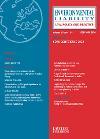Environmental Liability - Law, Policy and Practice

Special Issue
Volume 27 Issue 5/6
CORK CONFERENCE 2022
Editorial
OWEN McINTYRE
University College Cork
Article
Concretising international plastics governance through a UN Global Plastics Treaty
NOREEN O’MEARA
School of Law, University of Surrey
There is a robust case for negotiating a UN Global Plastics Treaty from a legal, social, scientific, economic, climate and environmental perspective. With much at stake in the INC negotiations, this article identifies essential features that would enhance the credibility of a rights-based Plastics Treaty grounded in core environmental principles, and make governance impacts across the entire lifecycle of plastics.
Characterising public participation as an international law norm
ALISON HOUGH
Senior Lecturer, Technological University of the Shannon
This article examines the nature of public participation, considering its status in international law, with reference to the literature on international law principles and customary law. It will consider international law provisions such as the Aarhus, Espoo and Escazú Conventions, the International Covenant on Social and Political Rights and the European Convention on Human Rights as well as the case law under these instruments, concluding that there is now sufficient evidence for a widespread state practice of public participation in environmental decision-making in a domestic and transboundary context as well as evidence that the practice is required, meeting the threshold of evidence for a rule of international law.
Some observations on how courts in the United States and European Union view their role in adjudicating climate litigation
PATRICK PARENTEAU
Vermont Law and Graduate School
This article explores the different approaches that courts in the EU and US are taking to the adjudication of climate liability in cases against governmental and nongovernmental entities. The framework for this analysis focuses on what claims are justiciable and what remedies are available. The doctrines of separation of powers, standing, and political question all come into play along with practical issues of the ability of courts to manage and enforce whatever remedies are ordered. The author concludes that courts in the EU appear to provide more promising fora for climate activists to pursue aggressive judicial remedies than US courts
Judicial enforcement of sea-fisheries law in Ireland
LAURIE O’KEEFFE
The EU study on Ireland’s sanction system suggests that the current regime for enforcement of sea-fisheries law in Ireland is ineffective, untenable and unsustainable. Furthermore, the ineffectiveness of the enforcement regime could be endangering the attainment of conservation and sustainability objectives under EU fisheries law in this jurisdiction. The author argues that in most cases, administrative sanctions would better reflect the range of circumstances involved in regulatory breaches, including sea-fisheries offences. This option should be considered by the legislature in order to avoid potential EU criticism and infringement proceedings
A specialised environmental court for Ireland: the model of India
MASRUR SALEKIN
University of Galway
This article, through a critical examination of the functionality of the National Green Tribunal (NGT) of India, argues that the NGT, which has contributed to ensuring environmental justice by allowing access to justice and public participation, can be used as a model for establishing a specialised environmental court for Ireland. It first discusses the functional method of comparative law, which is followed by an analysis of the salient features of the NGT and a discussion of the major challenges faced by the model.
Legislating for culture change: the Wellbeing of Future Generations Act 2015 and planning in Wales
CAER SMYTH
Cardiff University
This article explores Wales’ landmark sustainable development legislation, the Wellbeing of Future Generations Act 2015. It examines the approach the Act takes to deliver cultural change in Wales, focusing on the influence of the Act in the planning system. The article defines the Act’s approach as a ‘web of obligations’ and draws on original empirical research to explore some factors limiting this ‘web of obligations’ approach
Current Survey
European Union
MARTIN HEDEMANN-ROBINSON, University of Kent, Canterbury
Key Policy Developments, Law Enforcement Issues and Environmental Legislation
Update December 2020–March 2021...
